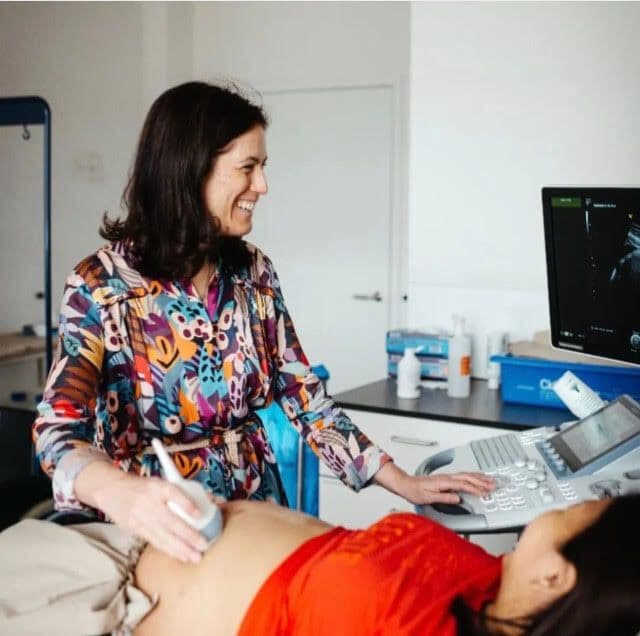
Obstetrics
We strive for a "natural" delivery for everyone as much as possible, where possible and safe. This is reflected in the annual SPE (Study Center for Perinatal Epidemiology) reports, where our team has been posting very good figures for a long time: low number of inductions, instrumental deliveries, 'cuts' (lowest in Flanders), and cesarean section rates.
What we mean by "natural" is freedom. Freedom to make an informed choice when, how, and with whom you give birth, with the safety of mother and child first and foremost.
Giving birth can, in the case of a low-risk pregnancy, also be done with your own independent midwife and/or with your doula.
We apply all applicable WHO (World Health Organization) and BFHI (Baby-Mother friendly) protocols.
Since 2006, our maternity ward was one of the first Belgian hospitals to obtain the BFHI label, launched by the World Health Organization (WHO) and Unicef in 1991. This label prioritizes the protection, promotion, and support of breastfeeding worldwide (baby-friendly) and guidance of mothers during labor and delivery with respect for physical and psychological needs (mother-friendly).
The BFHI imposes international standards, including for the quality of care regarding breastfeeding, guidance of expectant parents, and the marketing of infant formula.
A low-risk delivery is supervised as much as possible by our expert midwives and the gynecologist on duty is always available at the patient's request. During labor and delivery, the patient has the choice to adopt and change the ideal positions for her as she wishes.
Epidural anesthesia is always available and can also be useful, for example, if labor is not progressing. An anesthetist is always present in the hospital. However, this is not offered as standard, only if the pregnant woman requests it. Pain relief is also possible with laughing gas (Kalinox®).
If a cesarean section does appear necessary, it is performed as much as possible according to the principle of the 'gentle C-section', with early skin-to-skin contact.
At Sint-Vincentius, you can also go in the event of a so-called high-risk pregnancy, in which a maternal, fetal (congenital abnormalities), or pregnancy-developed complication (pregnancy poisoning, diabetes, growth retardation, etc.) occurs, with increased risk for mother and/or child.
The specific problem will be evaluated and discussed for each patient. In this way, the most optimal and safe delivery method and timing can be determined.
This is usually done in multidisciplinary and sometimes multicenter consultation with several specialties (internist/surgeon/pediatrician). These pregnancies and deliveries are always medically supervised by one or more gynecologists.

